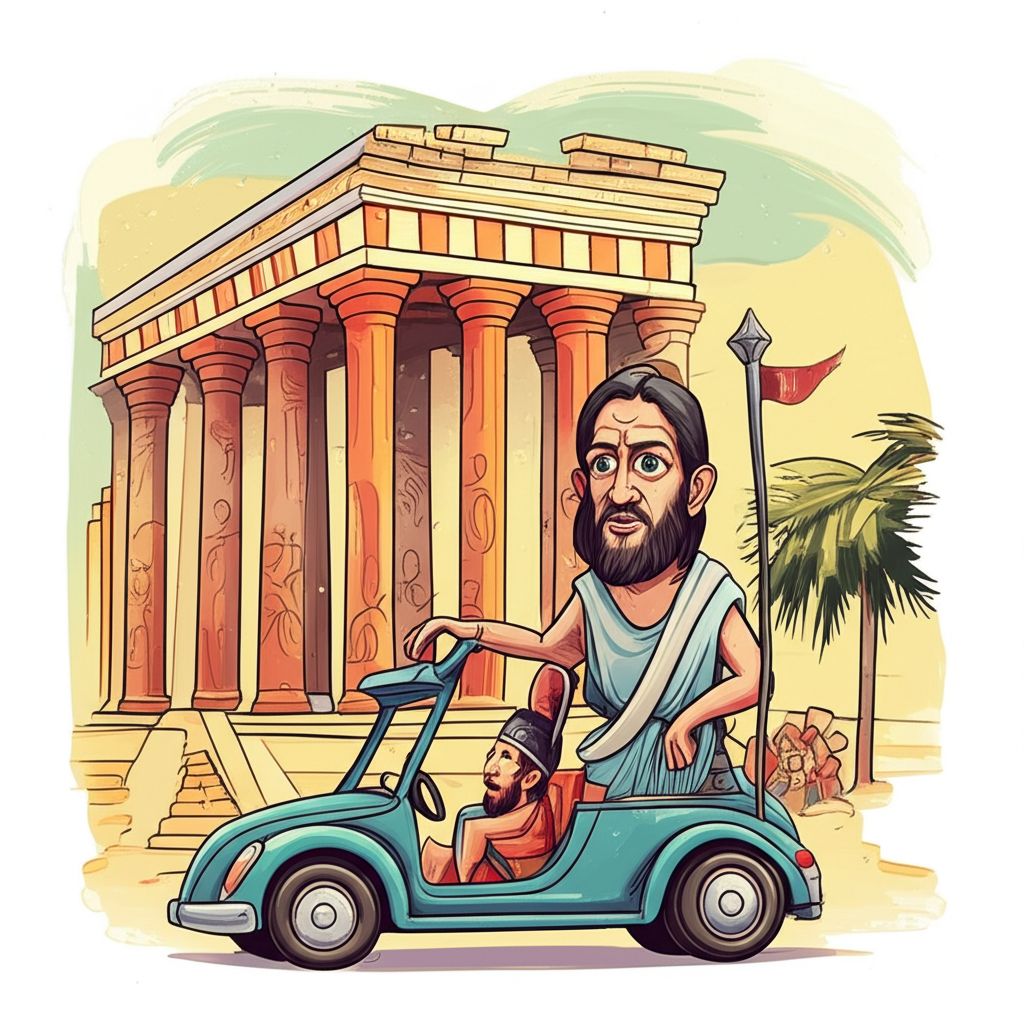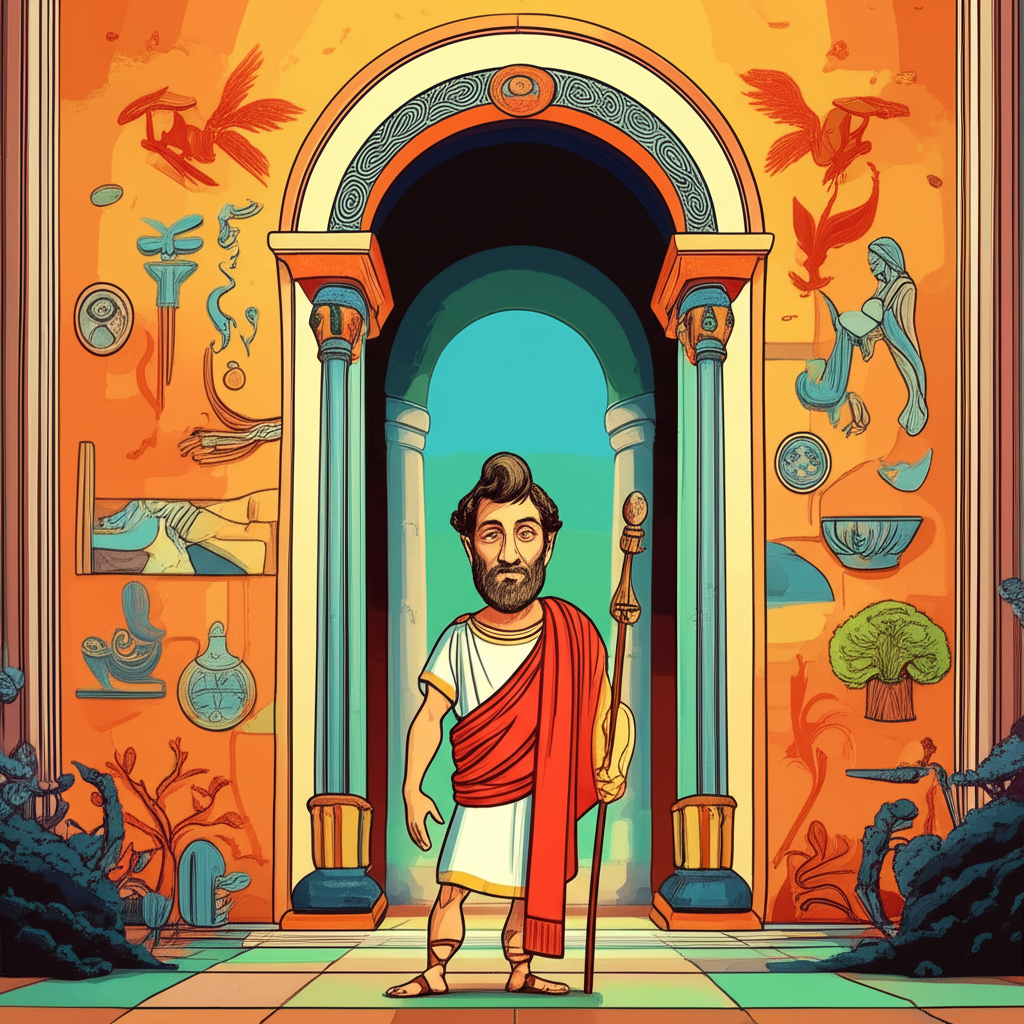
Introduction:
The story of Hermes and his involvement in the Trojan War is a captivating narrative woven from the rich tapestry of ancient Greek mythology. This is a traditional story, a vibrant piece of folklore passed down through generations of Greeks. It is a product of their imagination, a reflection of their values, and a window into their understanding of the world. As we delve into this tale, it’s crucial to remember that we are exploring a cultural narrative, a story told for entertainment and meaning, not a historical account or religious doctrine. Our focus is solely on understanding the myth’s cultural context and its enduring power as a storytelling tradition.
Origins and Cultural Background:
The stories of the Trojan War, including those featuring Hermes, originated in ancient Greece, a civilization that flourished in the Aegean Sea from roughly the 8th century BCE onward. This was a time of burgeoning city-states, each with its own customs, deities, and myths. The Greeks lived in a world where the natural and supernatural were intricately intertwined. They believed in a pantheon of gods and goddesses who resided on Mount Olympus, intervening in human affairs and influencing the course of events. These deities were not seen as abstract concepts but as powerful beings with human-like emotions, capable of love, hate, jealousy, and ambition.
The Greeks sought to explain the world around them through myth. They looked to the gods to understand natural phenomena like storms and harvests, and to make sense of human struggles like war and love. Their myths served as a moral compass, teaching lessons about courage, honor, and the consequences of hubris (excessive pride). The Trojan War, a conflict of epic proportions, provided a fertile ground for these moral and philosophical explorations, with heroes, villains, and gods alike playing their parts in a grand, dramatic spectacle. The stories were often shared through oral traditions, passed down by poets like Homer, who eventually compiled them into epic poems such as the Iliad and the Odyssey. These poems became cornerstones of Greek identity and influenced art, literature, and philosophy for centuries.
Character/Creature Description: Hermes, the Swift Messenger
Hermes, in the Greek imagination, was a god of many talents, embodying traits that were both essential and multifaceted. He was the messenger of the gods, a swift and nimble deity who could travel between the realms of mortals and immortals with unparalleled speed. His symbol was the caduceus, a staff entwined with two snakes, representing his roles as a mediator and protector. Often depicted wearing winged sandals and a winged hat (the petasos), Hermes was the epitome of agility and communication.
But Hermes was more than just a messenger. He was also a god of travelers, merchants, and thieves. This duality reflects the Greek understanding of commerce and social mobility, which were becoming increasingly important during their era. He was seen as a trickster, clever and resourceful, capable of outwitting even the most formidable opponents. This side of Hermes perhaps mirrored the complexities of human nature itself, acknowledging the potential for both good and mischief within individuals. He was also a psychopomp, guiding the souls of the deceased to the underworld, a role that highlighted his connection to the boundary between life and death. His attributes and roles demonstrate that he was both complex and essential to the Greek worldview.
Main Story / Narrative Retelling: The Messenger’s Shadow in the War
The Trojan War, a conflict born from a stolen queen and fueled by pride and rivalry, was a theater of immense drama, and Hermes played his part in its unfolding. He was not a central warrior like Achilles or Hector, but he was ever-present, flitting between the warring factions and carrying the decrees of the gods.
One of his most significant roles involved aiding Priam, the aged king of Troy. After the death of his son, Hector, Priam, driven by grief and a desperate desire to reclaim Hector’s body, ventured into the enemy camp. The gods, moved by his courage and sorrow, provided him with safe passage. It was Hermes who guided Priam, invisible to the Greek warriors, across the battlefield to the tent of Achilles. He cloaked Priam in a magical mist, making him appear as a beggar. Hermes then gently led him to Achilles’s tent and whispered words of solace and persuasion, helping to convince the wrathful warrior to return Hector’s body to the grieving Trojan king. It was a moment of profound humanity in the midst of war, a testament to Hermes’s role as a bridge-builder, a facilitator of communication, and a bringer of peace, however fleeting.
Hermes’s swiftness was also crucial in other instances. He was often dispatched to deliver divine messages to mortals, carrying news of victories, betrayals, and the whims of the gods. He might, for example, have delivered a command from Zeus to a hero, urging him to action or warning him of danger. He witnessed the horrors of war and the cruelty of the gods’ interventions, but he remained a neutral observer, a swift and efficient servant of the divine will. He wasn’t involved in the fighting, but his presence was felt in every aspect of the conflict, as he carried the whispers of the gods and the hopes and fears of mortals.
Symbolism and Meaning:
The figure of Hermes in the Trojan War, and in Greek mythology in general, holds deep symbolic meaning. He represents the importance of communication, diplomacy, and mediation in a world often marked by conflict. His speed and agility symbolize the swiftness of thought and the importance of adapting to changing circumstances. His role as a psychopomp reflects the Greek understanding of mortality and the afterlife, while his connection to commerce highlights the value they placed on trade and exchange.
The myth of Hermes and the Trojan War could have represented for the ancient Greeks the potential for peace, even in the midst of the most devastating conflict. Hermes’s role in helping Priam retrieve Hector’s body offered a moment of respite from the fighting, a reminder of shared humanity. Hermes’s versatility and adaptability, as a messenger, merchant, and guide, might have mirrored the complexities of the human condition and the various roles individuals could play in society. He stood as a reminder that even the gods had to communicate and seek resolution, just as mortals did.
Modern Perspective:
The stories of Hermes and the Trojan War continue to resonate in modern culture. Hermes’s image and attributes have influenced countless works of art, literature, and film. He is often depicted in art, advertising, and literature as a symbol of speed, communication, and commerce. The winged sandals, the caduceus, and the winged hat are instantly recognizable symbols. The story of the Trojan War itself has been retold countless times in novels, plays, and movies, offering a timeless exploration of themes like war, honor, love, loss, and the nature of the gods. Scholars continue to study these myths, analyzing their historical and cultural significance, and exploring their relevance to contemporary society.
Conclusion:
This exploration of Hermes and his role in the Trojan War has been a journey into the world of ancient Greek mythology, a realm of imagination and storytelling. It’s vital to reiterate that this is a cultural story, a narrative crafted by ancient people to make sense of their world and their place within it. As Muslims, we understand that Allah is the sole Creator and Sustainer, the only true God. We acknowledge the beauty and power of storytelling, the capacity of the human imagination to create compelling narratives, but we also recognize that all creation, all stories, and all understanding ultimately originate from Allah.
The myths of ancient Greece, including the tale of Hermes, offer us a glimpse into the past, a window into the minds of those who came before. They remind us of the enduring power of storytelling, the importance of cultural heritage, and the capacity of the human imagination to shape our understanding of the world. While we may not believe in the literal truth of these stories, they continue to inspire, provoke thought, and connect us to the shared human experience of creating myths and passing them on through generations.




